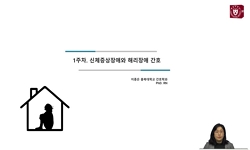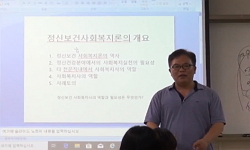『the Book of Causes』 as the anonymous book, which was selected as one of official curriculums in Paris University in 1255, is composed of relatively short and clear 31 propositions. Thats book deals with the relations of the first Cause and the Pr...
http://chineseinput.net/에서 pinyin(병음)방식으로 중국어를 변환할 수 있습니다.
변환된 중국어를 복사하여 사용하시면 됩니다.
- 中文 을 입력하시려면 zhongwen을 입력하시고 space를누르시면됩니다.
- 北京 을 입력하시려면 beijing을 입력하시고 space를 누르시면 됩니다.
https://www.riss.kr/link?id=A104500573
-
저자
이부현 (부산가톨릭대학교)

- 발행기관
- 학술지명
- 권호사항
-
발행연도
2017
-
작성언어
Korean
-
주제어
The first Causes ; the One and the Many ; Eternity and Time ; Intelligence ; Soul ; 제1원인 ; 일과 다 ; 영원과 시간 ; 정신 ; 영혼
-
등재정보
KCI등재
-
자료형태
학술저널
- 발행기관 URL
-
수록면
157-192(36쪽)
-
KCI 피인용횟수
0
- DOI식별코드
- 제공처
- 소장기관
-
0
상세조회 -
0
다운로드
부가정보
다국어 초록 (Multilingual Abstract)
『the Book of Causes』 as the anonymous book, which was selected as one of official curriculums in Paris University in 1255, is composed of relatively short and clear 31 propositions. Thats book deals with the relations of the first Cause and the Produced by it, the hierarchy of the Produced by it, the continual presence of the Produced by it, and the continual influences of the first Cause to the Produced. So, that book elucidates systematically metaphysical problems on the one and the many, the eternity and the time, the un-mover and mover, the cause and the effect, the whole and the parts, intelligence, the soul and material world.
『the Book of Causes』is mainly dependent on 『the Elements of Theology』of Proclus. He as the heresy was hostile to the Christianity. He calls the greek gods Henades and explains the various, perfect modes of Henades and emanation of all by them. But 『the Book of Causes』accepts not only his theory of emanation, but also the theory of creation beginning from the divine revelation. And that book accepts the monism based on revelation instead of the polytheism appearing in the concept of Henades of 『the Elements of Theology』.
This paper is written to reinterpret and reconstruct 『the Book of Causes』by the way of『the Elements of Theology. But this paper does it mainly in the limitation to the propositions of that book which M. Eckart cites. He quotes the propositions of that book 1-4, 5, 15, 20, 21, 23 in German Sermon and the propositions 1-6, 8, 9, 11, 12, 14-17, 19-21, 31 in the Latin works. So the main themes of this paper are as follows, ⓵ the propositions of『the Book of Causes』 1, 2 and M. Eckart ⓶ the propositions of『the Book of Causes』3, 4 and M. Eckart ⓷ the propositions of『the Book of Causes 5, 21, 20 and M. Eckart ⓸ the propositions of『the Book of Causes』30, 31 and M. Eckart.
국문 초록 (Abstract)
1255년 파리대학교 인문학부의 정식 교과로 채택되었던, 『원인론』은 31개의 비교적 간결한 명제들로 이루어져 있다. 이 책은 제 1원인과 그에 뒤따른 것과의 관계, 특히 제 1원인에 뒤따른 ...
1255년 파리대학교 인문학부의 정식 교과로 채택되었던, 『원인론』은 31개의 비교적 간결한 명제들로 이루어져 있다. 이 책은 제 1원인과 그에 뒤따른 것과의 관계, 특히 제 1원인에 뒤따른 것들의 제 1원인에 의한 위계질서, 그리고 그에 뒤따른 것들의 제 1원인에 의한 현존과 작용, 그에 뒤따른 것에 대한 제 1원인의 지속적 영향력 행사 등이 거론되고 있다. 이런 가운데 『원인론』은 일과 다, 영원과 시간, 부동자와 운동자, 원인과 결과, 전체와 부분, 존재, 정신, 영혼, 물체 세계 등에 대한 형이상학적 문제를 체계적으로 정리하고 있다.
『원인론』은 프로클로스의 『신학요강』에 의존하고 있다. 이교도인 프로클로스는 그리스도교에 적대적인 인물이다. 그는 전통적인 그리스 신들을 헤나데스(henades)라는 개념으로 변환시켜, 최고 단계의 다양한 완전성을 설명하고 있다. 그러나 『원인론』은 프로클로스의 『신학요강』의 유출 이론뿐만 아니라, 신적 계시로부터 비롯된 창조론도 수용하고 있다. 그리고 『원인론』은 『신학요강』에서 헤나데스 개념으로 바꾸어진 그리스 신들 대신, 계시에 바탕을 두는 일원론을 수용하고 있다. 물론 제 1원인은 인격신으로 주장되고 있지는 않다.
이 글 목적은 프로클로스의 『신학요강』을 잣대로 『원인론』을 재해석·재구성하고자 하는 것이다. 그러나 이 글은 이러한 작업의 일환으로 우선 M. 에크하르트가 인용하고 있는 『원인론』의 명제들에 국한하여 이러한 작업을 하고 있다. 그는 독일어 설교에서 『원인론』의 명제 1-4, 5, 15, 20, 21, 23을 인용하고 있다. 라틴어 저작에서는 『원인론』의 명제 1-6, 8, 9, 11, 12, 14-17, 19-21, 31 등을 인용하고 있다. 이런 의미에서 이 글은 M. 에크하르트에 대한 심도 깊은 이해를 위한 준비 작업이기도 하다. 이 글의 몸통은 ① 『원인론』의 명제 1, 2와 M. 에크하르트, ② 『원인론』의 명제 3, 4와 M. 에크하르트, ③ 『원인론』의 명제 5, 21, 20과 M. 에크하르트, ④ 『원인론』의 명제 30, 31과 M. 에크하르트 등으로 구성되어 있다.
참고문헌 (Reference)
1 조규홍, "원인론" 대전가톨릭대학교 출판부 2013
2 Fidora, Alexander, "Von Bagdad nach Toledo: Das “Buch der Ursachen” und seine Rezeption im Mittealter:Lateinische-deutscher Text, kommentar und Wirkungsgeschichte des Liber de Causis" Dietriech’sche Verlagsbuchhandlung
3 Otto Bardenhewer, "Ueber das reine Gute bekannt unter dem Namen Liber de causis" Herder’sche Verlagshandlung 1882
4 Proclus, "The Elements of Theology, A Revised Text with Translation, Introduction and Commentary" Oxford Universty Press 1963
5 Aristoteles, "Posterior Analytics" Harvard University Press 1966
6 Beierwaltes, W., "Platonismus des Mittelaters" Wissenschaftliche Buchgesellschaft 1969
7 Meister Eckhart, "Paradisus anime intelligentis, Aus der Oxforder Handschrift Cod. Laud. Misc. 479 nach E. Sievers’ Abschrift" Weidmannsche Buchhandlung 1919
8 Grabmann M., "Mittelalterlichen Geistesleben" Max Huieber Verlag 1936
9 Meister Eckhart, "Meister Eckhart: Die deutschen und lateinischen Werke" Kohlhammer
10 이부현, "M. 에크하르트의 『요한복음 주석』에 나타난 시원의 문제" 대동철학회 79 : 29-67, 2017
1 조규홍, "원인론" 대전가톨릭대학교 출판부 2013
2 Fidora, Alexander, "Von Bagdad nach Toledo: Das “Buch der Ursachen” und seine Rezeption im Mittealter:Lateinische-deutscher Text, kommentar und Wirkungsgeschichte des Liber de Causis" Dietriech’sche Verlagsbuchhandlung
3 Otto Bardenhewer, "Ueber das reine Gute bekannt unter dem Namen Liber de causis" Herder’sche Verlagshandlung 1882
4 Proclus, "The Elements of Theology, A Revised Text with Translation, Introduction and Commentary" Oxford Universty Press 1963
5 Aristoteles, "Posterior Analytics" Harvard University Press 1966
6 Beierwaltes, W., "Platonismus des Mittelaters" Wissenschaftliche Buchgesellschaft 1969
7 Meister Eckhart, "Paradisus anime intelligentis, Aus der Oxforder Handschrift Cod. Laud. Misc. 479 nach E. Sievers’ Abschrift" Weidmannsche Buchhandlung 1919
8 Grabmann M., "Mittelalterlichen Geistesleben" Max Huieber Verlag 1936
9 Meister Eckhart, "Meister Eckhart: Die deutschen und lateinischen Werke" Kohlhammer
10 이부현, "M. 에크하르트의 『요한복음 주석』에 나타난 시원의 문제" 대동철학회 79 : 29-67, 2017
11 Meister Eckhart, "LWⅣ: Magistri Echardi Sermones" 1987
12 Meister Eckhart, "LWⅢ: Magistri Echardi Expositio Sancti Evangelii secudum Iohannen" 1936
13 Meister Eckhart, "LWⅡ: Magistri Echardi Expositio Libri Exodi, Sermones et Lectiones super Ecclesiastici, Expositio Libri Sapientiae, Expostio Cantici Cantorum, hrs, und übers" 1992
14 Meister Eckhart, "LWⅠ: Magistri Echardi Prologi, Expositio Libri Genesis, Liber Parabolarum Genesis" 1964
15 Ruhe, K., "Geschichte der abendländischen Mystik" Verlag C. H. Beck München 1996
16 Meister Eckhart, "DW Ⅲ: Die deutsche Werke" 2000
17 Meister Eckhart, "DW Ⅱ: Die deutsche Werke" 1971
18 Meister Eckhart, "DW Ⅰ: Die deutsche Werke" 1958
동일학술지(권/호) 다른 논문
-
- 대동철학회
- 김경배
- 2017
- KCI등재
-
- 대동철학회
- 이윤일
- 2017
- KCI등재
-
- 대동철학회
- 정낙림
- 2017
- KCI등재
-
- 대동철학회
- 김상봉
- 2017
- KCI등재
분석정보
인용정보 인용지수 설명보기
학술지 이력
| 연월일 | 이력구분 | 이력상세 | 등재구분 |
|---|---|---|---|
| 2027 | 평가예정 | 재인증평가 신청대상 (재인증) | |
| 2021-01-01 | 평가 | 등재학술지 유지 (재인증) |  |
| 2018-01-01 | 평가 | 등재학술지 선정 (계속평가) |  |
| 2017-12-01 | 평가 | 등재후보로 하락 (계속평가) |  |
| 2013-01-01 | 평가 | 등재 1차 FAIL (등재유지) |  |
| 2010-01-01 | 평가 | 등재학술지 유지 (등재유지) |  |
| 2008-01-01 | 평가 | 등재학술지 유지 (등재유지) |  |
| 2005-01-01 | 평가 | 등재학술지 선정 (등재후보2차) |  |
| 2004-01-01 | 평가 | 등재후보 1차 PASS (등재후보1차) |  |
| 2002-01-01 | 평가 | 등재후보학술지 선정 (신규평가) |  |
학술지 인용정보
| 기준연도 | WOS-KCI 통합IF(2년) | KCIF(2년) | KCIF(3년) |
|---|---|---|---|
| 2016 | 0.45 | 0.45 | 0.47 |
| KCIF(4년) | KCIF(5년) | 중심성지수(3년) | 즉시성지수 |
| 0.47 | 0.53 | 1.021 | 0.19 |




 eArticle
eArticle







